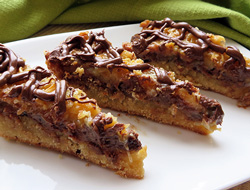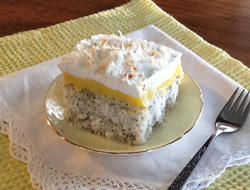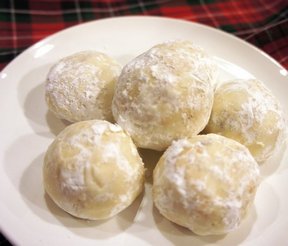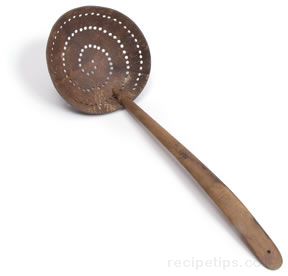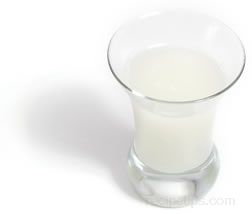When selecting coconuts, shake the husk and listen for the sound of the liquid within, since coconuts dry out after being picked. Coconuts with little liquid will have a firmer meat within. The coconut should feel somewhat heavy, free of soft spots and contain liquid that can easily detected. Check the bottom of the shell to make sure there is no mold or moisture forming around the eyes. When the coconut is opened, the meat should be bright white in color, firm in texture, and sweet tasting. The thin skin that holds the meat to the husk or shell should be dark brown and not contain patches of discoloring or white areas.
To begin to open the coconut, pierce one of the eyes or holes in the bottom to release the milk. Strain the liquid if it is to be consumed. The coconut can then be heated or frozen to assist with the cracking of the husk to remove the meat. By heating the coconut at 325º in an oven for 15 to 20 minutes, the meat softens releasing its bond to the shell. Remove the coconut from the oven, wrap it in a towel, and then use a hammer or mallet to tap the shell around the outside to assist with releasing the meat from the shell. The hammer or mallet can then be used to crack the shell and peel away any remaining meat. The method of freezing the coconut to remove the meat may be slightly simpler than oven baking. First, freeze the coconut for day or overnight and then when ready to remove the meat, defrost the coconut and crack it open after it has fully defrosted. The meat can then be peeled away from the cracked husk. Aften oven baking or freezing, the meat will still contain a dark skin on one side, which can be removed by using a vegetable peeler or knife.
Shelled coconuts that have not been opened can be stored refrigerated for 2 to 3 weeks. Meat that has been removed but not shredded can be refrigerated in an airtight container for 8 to 12 days before it begins to deteriorate. Shredded coconut can be kept refrigerated in airtight containers for approximately 4 days. Freezing coconut will allow it to be stored for approximately a year. For best results when freezing, cut the meat into chunks and for each cup of meat, sprinkle a tablespoon of sugar over the chunks, and store in airtight containers. A medium coconut will provide approximately 3 cups of shredded meat.
Coconut is available fresh, canned or shredded. It can be purchased in whole shells either as white shelled coconuts or dark brown shelled coconuts. White coconuts are picked when they are young prior to turning dark brown, with an outer husk that still has a significant amount of hair. Shelled young coconut meat is available as whole fresh pieces wrapped in plastic or packaged in sealed containers. Shredded coconut is available packaged in bags or cans. The milk of the coconut is most often available canned, but fresh milk may also be available.






